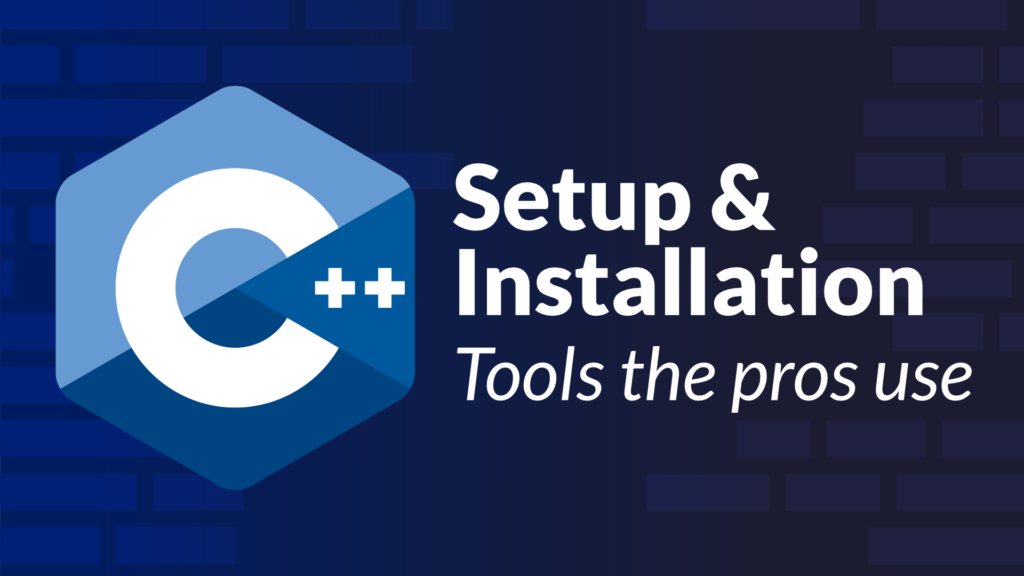Setting up a C++ development environment can be one of the most challenging aspects for newcomers, especially when juggling different operating systems and toolchains. Whether you’re aiming to build robust applications or contribute to professional-grade projects, having the right setup is essential for productivity and code quality. Modern C++ development is no longer just about writing code. It’s also about managing dependencies, automating builds, collaborating with version control, and even utilizing AI tools to accelerate development.
We just published a course on the freeCodeCamp.org YouTube channel that will teach you all about setting up a professional-grade C++ development environment using tools like CMake, vcpkg, Docker, and GitHub Copilot. This comprehensive course walks you through setting up your environment across Windows, Linux, and macOS, ensuring that you’re well-equipped no matter what platform you’re on. You’ll learn how to configure CMake and vcpkg, which simplifies the process of handling C++ libraries and dependencies. The course also covers Docker-based setups, making it easy to create portable, reproducible development environments. Daniel Gakwaya developed this course.
Let’s break down these essential tools:
CMake is a widely used build system generator that helps manage the compilation process of C++ projects in a platform-independent manner. It allows you to write simple configuration files (CMakeLists.txt) to define how your code should be compiled, what dependencies to include, and how to organize your project. Instead of writing custom build scripts for each operating system, CMake lets you write one unified configuration and generate platform-specific build files automatically. This is a game-changer for cross-platform development and is favored by many open-source and enterprise-level projects.
vcpkg is a C++ library manager developed by Microsoft that integrates seamlessly with CMake. It automates the process of downloading, building, and installing third-party libraries, saving you from the tedious and error-prone task of configuring each library manually. With a single command, you can install libraries like Boost, OpenCV, or fmt and have them ready to use in your project. vcpkg ensures consistency across systems and makes dependency management much more maintainable and scalable.
Docker is a tool designed to create and manage lightweight containers that package your application and its environment. For C++ developers, Docker is especially useful for setting up reproducible development and build environments. You can configure a Docker container with all the necessary tools, compilers, and dependencies, and then share that container with teammates or deploy it in CI/CD pipelines. This approach eliminates the “it works on my machine” problem and is a staple in modern software development workflows.
GitHub Copilot, powered by AI, acts as a virtual pair programmer that can assist you in writing code, suggesting functions, and even generating boilerplate based on your comments and existing code. In C++—a language known for its complexity and verbosity—Copilot can be a huge productivity booster. It helps by generating repetitive code structures, offering context-aware suggestions, and reducing the time spent searching for syntax or patterns. While it doesn’t replace the need for solid C++ knowledge, it can accelerate development and reduce mental overhead.
This course also dives into using Git for version control—a fundamental skill in any programming career—and demonstrates how to use Compiler Explorer, a handy online tool for trying out C++ snippets and viewing the resulting assembly code in real time. It’s perfect for learning, testing, and understanding how your code is interpreted by the compiler.
Whether you’re a beginner looking to set up your first project or a professional aiming to streamline your workflow, this course offers a practical, up-to-date guide to mastering the tools the pros use in C++ development. It’s a great way to build a solid foundation and level up your C++ skills in today’s multi-platform, AI-augmented development landscape.
Watch the full course on the freeCodeCamp.org YouTube channel (6-hour watch).
Source: freeCodeCamp Programming Tutorials: Python, JavaScript, Git & MoreÂ


